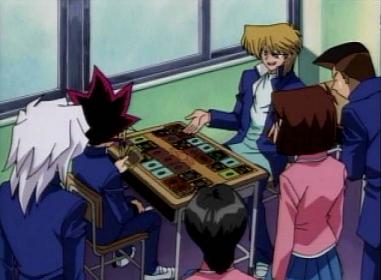Today someone asked ‘what is more important in deckbuilding: theory-oh or play-testing?’. With limited time to deck-build before an event (unless you can stop time, in which case hit me up), knowing the answer to this — and thus knowing how to best make use of your time — is very important, with a direct impact on your success at an event.
Let me outline a concept for use throughout the article. In any game, you can have a function that will tell you if you will win or lose. Let’s call it ‘f’. f will be a function of many things (this the value of f will depend on these things), such as your opponent’s skill level, the match-up, luck, etc. One or more of the things which f depends on can be random without stopping you from calculating the value. For example, if you have f(x) = x + 5, and you choose a random for x, you will always get a number for f(x), no matter what value of x you choose.
To show the underlying ideas in a more simple manner, lets consider what happens when you play rock, paper, scissors (let’s call it RPS) on dueling network. Of course, we already know how RPS works, but let’s pretend we don’t, so that we can see the logical process involved. This is analogous to deck-building before play-testing or theorizing: you have no idea what f is. HOWEVER, you know that there is a function for this, as there will be a function for all games. This is important, all you need to know that the function exists.

So, you have no idea how RPS works. You start playing, and choose rock every time (go hard or go home). You notice that in your last thirty games of picking rock, you had 20 losses and 10 wins. [Note: this is an analogy to yugioh, when you are play-testing against a certain deck]. From looking at your recent losses and wins, you might decide that rock has a 30% win rate, and is thus a bad choice. What is happening here is that you’re plugging random things into the unknown equation, and getting a result (win or lose). So in other words, as you play increasing amounts of games, you’re getting closer to figuring out what f should be (and thus what you need to do to win).
Let us refer to our RPS example where we chose rock for thirty games. You’ll notice that we assume we don’t know anything about the game — this is similar to us looking at a new match up which has not seen play before. Because of this, we are unable to theorize, and deck-build through theory prior to having play-tested. A counterargument to this point is ‘hey, I looked at the cards and saw x interactions, and from this I’ve decided y card is good’. However, you understood and saw these possible interactions BECAUSE of prior play-testing — in effect, because of your experience with the game.
This is an example of a results oriented mindset when deck-building, and is extremely prone to skewed results when you have smaller sample sizes. However, what is the other mindset? The other mindset is a theory oriented one.
Let’s call the function that you’ve approximated through your play-testing ‘g’. A theory oriented mindset involves taking g, and plugging different things into g and finding the results. Because g is based off of the results of your play-testing, as you play-test increasing amounts of games, g will become closer and closer to f (law of large numbers). An example of this is taking a new card, and using the play-testing you have done, seeing if it produces a win when plugged into g.
So let’s go over this quickly. When building a deck it is optimal to being play-testing to get an idea of the function f, and then once you have reached a level of accuracy (or in other words, played a reasonable amount of games, alot of people like between 100-200) you move to theory and begin to start plugging stuff into g. So in other words, good theory is built from the results of exploration through play-testing.

‘Yeah, well how many tops do you have, Joey?’
Some final notes: once you have completed the above and built your deck according to theory, there is lessened value (with respect to deck-building) in play-testing it, unless you are willing to play-test it for a large amount of games. If you test for say five or so games, and then make changes based on those games, you are falling into the trap described previously — you may have simply had bad luck those five games, and because of that the changes you are making will actually negatively impact you when plugged into f. Another complaint I have seen is ‘I theorized a deck, and I lost four games in a row’. This brings up two points — one, have you played a sufficiently large amount of games? If so, then sadly it means that you need to restart your theory — your g function is just not close to f. If your theory does not correlate with the results of large amounts of games, it means you need to rethink your theory.
